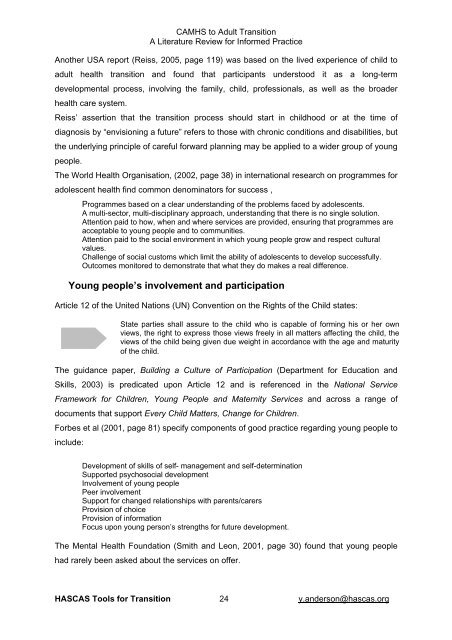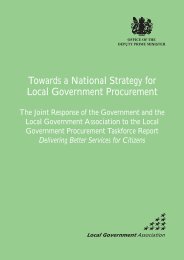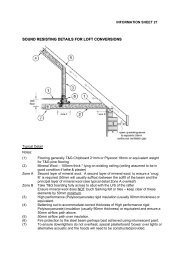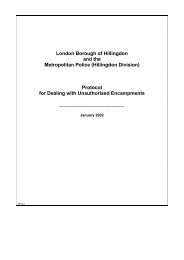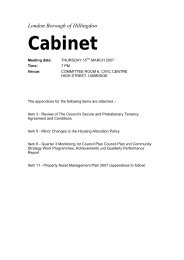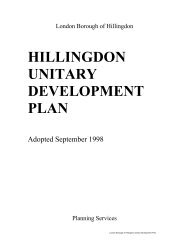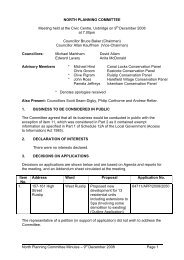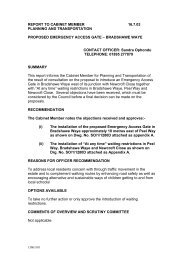Report - London Borough of Hillingdon
Report - London Borough of Hillingdon
Report - London Borough of Hillingdon
You also want an ePaper? Increase the reach of your titles
YUMPU automatically turns print PDFs into web optimized ePapers that Google loves.
CAMHS to Adult Transition<br />
A Literature Review for Informed Practice<br />
Another USA report (Reiss, 2005, page 119) was based on the lived experience <strong>of</strong> child to<br />
adult health transition and found that participants understood it as a long-term<br />
developmental process, involving the family, child, pr<strong>of</strong>essionals, as well as the broader<br />
health care system.<br />
Reiss’ assertion that the transition process should start in childhood or at the time <strong>of</strong><br />
diagnosis by “envisioning a future” refers to those with chronic conditions and disabilities, but<br />
the underlying principle <strong>of</strong> careful forward planning may be applied to a wider group <strong>of</strong> young<br />
people.<br />
The World Health Organisation, (2002, page 38) in international research on programmes for<br />
adolescent health find common denominators for success ,<br />
Programmes based on a clear understanding <strong>of</strong> the problems faced by adolescents.<br />
A multi-sector, multi-disciplinary approach, understanding that there is no single solution.<br />
Attention paid to how, when and where services are provided, ensuring that programmes are<br />
acceptable to young people and to communities.<br />
Attention paid to the social environment in which young people grow and respect cultural<br />
values.<br />
Challenge <strong>of</strong> social customs which limit the ability <strong>of</strong> adolescents to develop successfully.<br />
Outcomes monitored to demonstrate that what they do makes a real difference.<br />
Young people’s involvement and participation<br />
Article 12 <strong>of</strong> the United Nations (UN) Convention on the Rights <strong>of</strong> the Child states:<br />
State parties shall assure to the child who is capable <strong>of</strong> forming his or her own<br />
views, the right to express those views freely in all matters affecting the child, the<br />
views <strong>of</strong> the child being given due weight in accordance with the age and maturity<br />
<strong>of</strong> the child.<br />
The guidance paper, Building a Culture <strong>of</strong> Participation (Department for Education and<br />
Skills, 2003) is predicated upon Article 12 and is referenced in the National Service<br />
Framework for Children, Young People and Maternity Services and across a range <strong>of</strong><br />
documents that support Every Child Matters, Change for Children.<br />
Forbes et al (2001, page 81) specify components <strong>of</strong> good practice regarding young people to<br />
include:<br />
Development <strong>of</strong> skills <strong>of</strong> self- management and self-determination<br />
Supported psychosocial development<br />
Involvement <strong>of</strong> young people<br />
Peer involvement<br />
Support for changed relationships with parents/carers<br />
Provision <strong>of</strong> choice<br />
Provision <strong>of</strong> information<br />
Focus upon young person’s strengths for future development.<br />
The Mental Health Foundation (Smith and Leon, 2001, page 30) found that young people<br />
had rarely been asked about the services on <strong>of</strong>fer.<br />
HASCAS Tools for Transition 24 y.anderson@hascas.org


